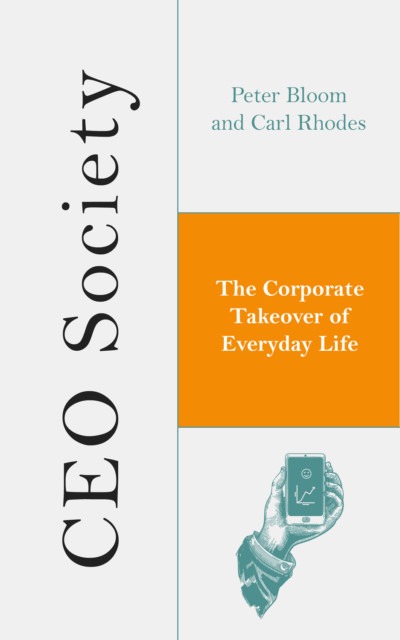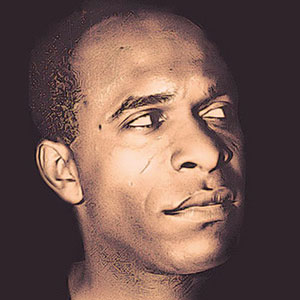
Chief Executive Officers (CEOs) are the cultural icons of the 21st century - role models who epitomise the modern pursuit of innovation, wealth and success. In their new book "CEO Society: The Corporate Takeover of Everyday Life" (Zed Books), Peter Bloom and Carl Rhodes argue that corporate leadership has become the model for transforming not just business, but all spheres of life. But why, in the wake of the failings exposed by the 2008 financial crisis, does the corporate ideal continue to exert such a grip on popular attitudes? Here, they discuss the rise of the CEO society, and how it has started to transform governments, culture and the economy.
How would you define “CEO society”?
Peter Bloom: For us, the CEO Society represents the contemporary social veneration and internalisation of corporate executive leadership values. Crucially, this is not the embrace of what it actually means to be a CEO but rather of a cultural image of the decisive and visionary business man – yes it is very masculine – who can use market rationality and tough-mindedness to maximise value, get things done, and move boldly forward into the future. CEOs have become, despite their actual records of ineffectiveness and ethical malfeasance, the 21st century icons upon which we increasingly judge our political leaders and ourselves.
When and how did it gain such prominence?
Carl Rhodes: Historically, the CEO society can be traced back to the rise of neoliberalism in the late 1970s and early 1980s – especially with the political success of free market economic policy in the UK and US under Thatcher and Reagan. This was the beginning of what has become a hyper-capitalist era on a global scale, when it was popularly declared that ‘greed is good’. So, when corporations started to be seen as the engine hosues of the dream of a new laissez faire prosperity, their leaders became mythologised as heroes. That heorism spread beyond the board room, and became a blue print for so much more. In real life CEOs such as Chrysler’s Lee Iacocca and GE’s Jack Welch became role models for individual success, independence and economic prosperity. This veneration continued to grow over the intervening three decades, especially as tech executives such as Steve Jobs and Bill Gates were held up as visionaries ushering us into a new era of social advancement and modern were robber barons like Richard Branson had become the epitome of the culturally ‘cool’ wealthy.
PB: Especially troubling is how this CEO approach also extended to our political leaders. Top politicians today are expected to embody corporate leadership values and the ability to single-handedly "make deals" and "get things done". What’s really significant is that even as the economic sustainability and ethical desirability of capitalism are progressively put into question, the fetishised worship of the "effective", "forward thinking", and "successful" CEO persists.
How does it permeate our daily lives?
CR: This is the whole meaning of what we call the CEO society, that the admiration of and deference to the corporate executive is not restricted to our organisational or political leaders. It more and more invades all aspects of our lives. It is a way of seeing and acting within the world that prioritises using our instrumentality, narrow self-interest and economic rationality to constantly gain a competitive advantage over others, find new ways to optimise our efficiency and productivity, and ultimately achieve our objectives with little concern for its overall cost to others or society. This extends beyond a competitive job market and includes the trumpeting of these executive ideals as a type of "self-help" discourse for "maximising" everything from your love live to your personal well-being.
Is this a problem and if so why? Is there anything positive about it?
PB: The proliferation of a CEO society is a serious and urgent problem. There is mounting evidence that economically, even by its own standards of economic profits, the empowering of CEOs is ineffective and problematic. Going even further, it reflects the organising of political, social, and inter-personal relations around quite destructive corporate ideals. It is precisely this winner takes all and the only thing that matters is the bottom line attitude, that has destroyed the environment, led to a near global economic catastrophe, contributed to rapidly rising inequality, and stymied 21st workplace democracy. It is now performing a veritable corporate takeover of our politics and our inner lives.
CR: We need to be clear that while overall this trend his hugely negative and should be fundamentally challenged, it is less a cause and more of a symptomatic indictment of our current global system. It reflects the feeling of disempowerment and lack agency so many people have in our present day free market order. It also reflects a deep-seated desire to have greater power to shape society both in the short and long term. The CEO for all their real life inadequacies, reflects a troubling macho-heroic ideal that separates the world into winners and losers. It is crucial, that we construct new more progressive, egalitarian, community based and democratic visions and pathways for realising personal and collective transformation that isn’t based on the idea of hostile competition and conquest.
Did the 2008 financial crash have any impact on this?=
PB: The 2008 financial crash had a huge impact, rather ironically as it turns out, on the growth of the CEO society. At first it would seem that this would be a clarion call to reject CEOs and the damaging effects of their underlying top down elitist executive values. This was only reinforced by the popular anger against "the 1 per cent" and the actual corporate leaders who were being given "golden parachutes" and government subsidies rather than being held accountable for ruining the lives of millions internationally through their myopic greed. Yet a strange thing happened on the way to bringing these "masters of the universe" back down to earth – they ended up paradoxically seeming more god-like than ever before. The reason is that in this period of mass uncertainty, the CEO re-emerged as a strong and decisive figure who could do what was necessary to bring back prosperity, speed up the recovery, and deliver a sense of stability and well being. Just as the corporate executive is hired to use their heroic leadership to turn around companies, so to where they increasingly tasked with saving nations.
CR: What was also happening in the wake of the financial crisis that the underlying framing of political and economic success was being positioned in quite misleading capitalist terms. This posited that the problem was that government was inefficient, close to fiscal insolvency, and needed to be more globally competitive. Who better, in this respect, to achieve these ambitions than a successful CEO? Ultimately this led to the situation that we have today in the United States where CEOs are praised for being willing to avoid political correctness so as to offend people in the name of doing what needs to be done. While appealing on a superficial level, this is an idea that unfortunately has had devastating results not just in the US but around the world, reaching from the Oval Office to our own hearts and minds.
Tech CEOs have been particularly venerated. Do you see that changing with, for instance, the current negative focus on Facebook?
PB: The recent condemnation of Facebook in the wake of the Cambridge Analytica scandal is a telling sign but one that may do little ultimately to weaken the CEO society. We will have to see if the has any lasting effect beyond the limited scope of the news cycle, but it would appear that pointing to the problems of the actions of a single CEO can actually reinforce how CEO values are respected more generally. A corporate apology is a statement that the CEO values where not lived up to on a particular occasion, not a repudiation of those values in themselves. The cultural fantasy of the need for CEOs to be successful whether individually, in business or politically remains intact. Until we are able to articulate fresh more democratic, bottom up, and just ideals of decision-making and governance, we will continue to badly invest in the figure of the CEO.
It’s been noted that Trump talks up his achievements in business but has actually gone bankrupt numerous times. How does that square?
CR: Trump’s appeal, as we see it, is associated less with his actual achievements and more with his perceived status as a visionary and ruthless business person who is an expert deal maker. In many ways he is a caricature of a CEO, a wild exaggeration of the values we explore. Of course this was an image that he developed in the public eye through his role on the TV show The Apprentice. To this extent, it is assumed that Trump understands the business world and therefore both the economy and how to cut through red tape in order to get things done and "make America great again". If he has to ruffle feathers and fire people along the way, nothing will stop him. Consequently, he has taken advantage of general reverence of the figure of the CEO as a social icon rather than its reality. More troubling is that with these CEO values comes a dramatic disrespect for democracy and its institutions.
The impact of CEO society on politics is very much evident in the rise of Trump. What about other countries around the world?
PB: What is happening in the US is perhaps the prime realisation of the CEO society, especially with Trump’s presidency and the extreme embrace of individualism and competition that it echoes. Having said that, the CEO society is a global phenomenon, in fact one that has developed alongside late 20th century economic globalisation. Politically it is seen in the leadership of President of China Xi Jinping as well as the French President Emmanuel Macron. It is a general leadership style, the heroic political executive who can single handily deliver results and ensure the country is a winner in an increasingly competitive global marketplace. It also is extending to the hopes and desires of everyday people internationally. It is way of viewing the world and orienting our aspirations, using data and market rationality to achieve all our personal and professional dreams.
Will CEO society ever come to an end?
CR: While no one can ever predict the future, there are definitely optimistic signs that the CEO society may be weakening. The failures of Trump and protest against Macron, for instance, reveal the dangers of allowing executives leadership into our politics. In many ways the CEO is a kind of Jekyll and Hyde character, who is both revered and criticised. At present, and our book is a part of it, the phenomena is becoming so extreme and exaggerated that the criticism is building steam, especially amongst young people.
PB: There are other positive signs too. The success of progressive grassroots political and economic campaigns – from Momentum in the UK to the Red State teacher’s protests in the US – reveal the renewed promise of collective action in the 21st century. So too does the fact that progressive politicians from Bernie Saunders in the US to Jeremy Corbyn in the UK are enjoying a popularity not even imaginable even a few years ago. But let’s not be overly optimistic, while these are all obviously welcome developments, we need to confront our debilitating myth of the CEO head on, revealing the need to for new ideals that eschew such authoritarian values for democratic ones. That means in practice also reinvigorating the power of all of us to use civic society and political institutions to positively change their own lives and the world.

